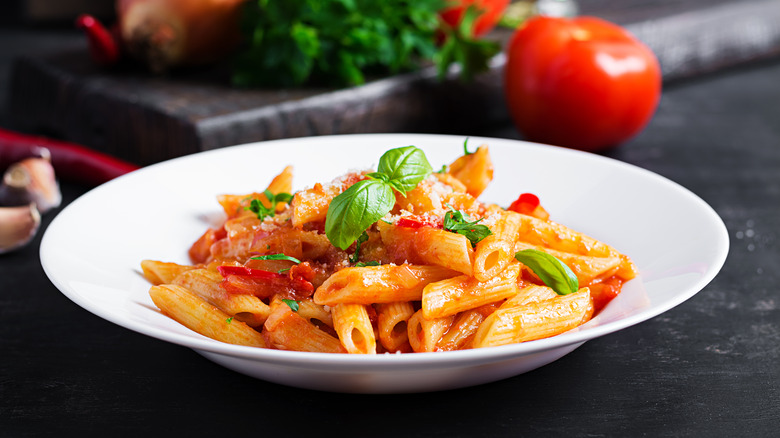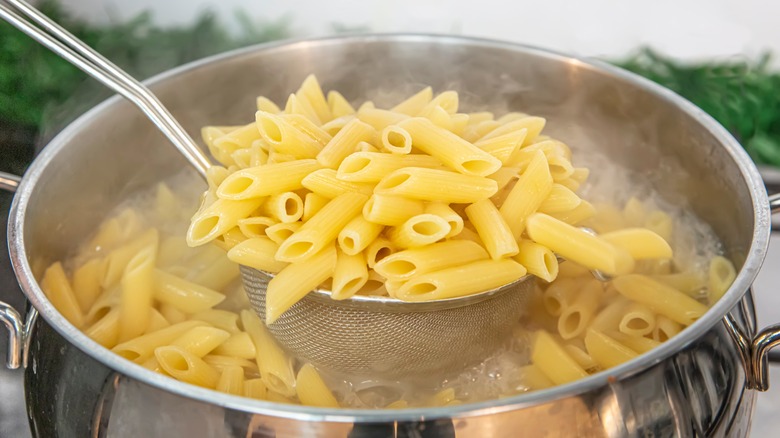The Nobel Scientist-Approved Pasta Cooking Method That Upset Italians
You probably don't need us to tell you not to mess with Italians and their pasta, but apparently, some scientists still need the reminder. Italian food is some of the most diverse in the world, but no other dish, even pizza, quite defines the nation's cuisine like pasta does. Italy ranks first in the world in pasta consumption according to Italian Food, eating more than two-and-a-half times as much pasta per person as the United States. It's a food that, according to Italy Foodies, evokes both national and local pride, from Ligurian pesto to puttanesca in Naples. It's not surprising Italians would have a few strong opinions on it.
If Italians love anything as much as pasta, it's telling people that they are making their food wrong. As YouGov discovered, many Italians have very specific ideas about how their food should be cooked and consumed, even when the rest of the world doesn't care. You probably already know that they aren't likely to eat spaghetti with meatballs, but far worse than that is adding cream to your carbonara or having pasta as a side dish. Lots of people will get defensive over the right way to cook a traditional dish from their home country's cuisine, but Italy has a particular passion for really sweating the details. So when a Nobel prize-winning physicist decides to weigh in on a "better" way to cook pasta, you know he's wading into some hot water.
An Italian scientist suggests turning off the heat on pasta before it's fully cooked
Normally hearing a new cooking trick from a scientist would be cause for some genuine interest, but that just wasn't the case this time. According to The Independent, an Italian quantum theorist recently made the suggestion that people could cook pasta by bringing the water to a boil for two minutes, then covering the pot and turning off the heat. The cover should trap the warmth, and the heat should be enough to cook the pasta without the extra energy needed to keep heating the pot. The suggestion was made with good reason, as the scientist is concerned about saving gas due to an ongoing shortage in Europe.
Unfortunately, good intentions aren't always enough when dealing with something as sensitive as food. Several chefs who weighed in on the story were horrified, claiming pasta cooked this way would turn out poor and rubbery. One chef even went so far as to say it would be a "disaster." Clearly, the advice was not appreciated, but one group, the Italian Pastai of Unione Italiana Food, did admit that it would save almost 50% of the energy normally spent on cooking pasta. So let that be a lesson for everyone. It doesn't matter if you are technically correct or even if it's a good thing to do, Italians want their pasta cooked perfectly, and they aren't going to settle for less.

